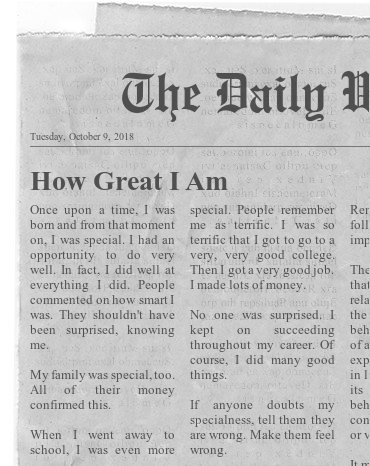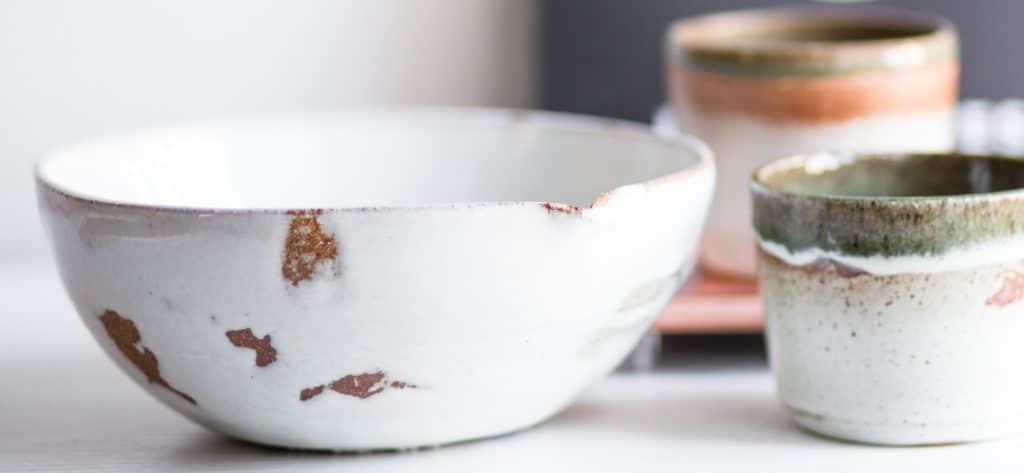
Over the past weeks, we’ve been forced to listen to a public biography that was photoshopped and edited to a polished, plasticized, perfection.
Viewed through the lens of a storyteller, it was a lousy story.
The main arc of the story, as much as I could listen to it, went something like this: I came from a privileged family. I was sent to an elite prep school and then an elite college. I attended an elite Law school. I worked hard. I did well. I succeeded at everything. I’m a model citizen. Sure, I like my beers, but that just shows I’m human.
Human? Yeah right.
Real stories don’t sound like that.
Susan Shapiro, in her hot-off-the-press book for professional writers, The Byline Bible, invites her readers, if they want to be published, to share their vulnerabilities, idiosyncrasies, failings, and obsessions when they write. She tells them to be human and share with their readers what they’ve learned from life–while never portraying themselves as victims.
As someone who seeks out stories, I prefer ones that include some struggle, internal conflict, epiphanies, and quirkiness. I want to learn about people who have known difficulties, bruises, and, hopefully, redemption.
I like stories about those who have been a bit broken and picked themselves back up, taking away from their experiences great empathy and compassion for others.
I have little interest in the polished, public relations version of someone’s story–unless he or she has a tuned-in publicist who allows a little vulnerability to bleed through.
“I’m so good and I’ve always been good” stories make me want to retch.
Pride, combined with privilege that lacks insight, is a formula for hubris. It’s unsatisfying to read about, unless, of course, the hero falls.
The unspoken subtext of the story we’ve been hearing is: because I’ve succeeded with all the privileges I’ve had, I deserve more.
Going to Yale wasn’t the problem with the story, nor was coming from privilege. If you come from privilege, own up to it in your story, and don’t let it set you apart. Dig deeper into your life and find some compassion for others. Even the privileged can carry tough stories.
Whatever you do, don’t whitewash your story.
Your story is precious. It’s you. Guard its integrity and peculiarities with your life.
Don’t photoshop your life
When I was a teenager, I read Seventeen Magazine and believed that in order to be popular I needed to look like the models I saw displayed on its pages. The beautiful girls I saw had no zits, freckles, fuzzy eyebrows, or worn collars. No moths ate holes in their sweaters. Their hair was never messy, nor their fingernails grimy. They never buttoned up their cardigans wrong. These people, I decided, were perfect. I wasn’t.
Little did I know that every photo in the magazine had been airbrushed, cropped and burned (how we had to edit before digital photography) and none of it was real.
American advertising thrives on promoting the illusion of perfect appearance.
“Flawless,” though, makes for a crummy story.
The Art of Imperfection
In contrast, Andrew Wyeth, one of the preeminent U.S. painters of the mid-twentieth century, chose to paint the farmers, hunters, and housewives who were his neighbors, none of whom were “classically beautiful.” He painted their beaked noses, chiseled faces, furrows, worn garments, and warts in great detail.
In capturing their “flaws” and peculiarities, he brought out their humanity. His subjects, realistically portrayed, were hauntingly beautiful.
The Japanese have a concept that is at the heart of their traditional aesthetic: wabi-sabi, which, loosely translated, means “flawed beauty.” Artists allow for some imperfection, quirk or anomaly in even the most beautiful house or piece of pottery.
Our flaws and imperfections, as we are able to own them and learn from them, make us who we are. They shape the background for a beautiful story.
Don’t photoshop them away.











8 Responses
Not to photoshop, I absolutely agree. But to put “ some make-up to hide a bit the scar”, even in writing your own story, I would’nt be against, if that made ME feel better…
Agreed. We can add some make-up and tweak….Stories can do that. As long as we also knew that there is dignity in our wounds. And we don’t need to look perfect for the world. Thanks for posting Raquel!
Salli am falling in love with my story of imperfections, failures, challenges, heartbreak, and some great moments of insight, love and triumph over adversity. The imperfections and challenges give all the depth snd texture. I do appreciate your insight into the curating and airbrushing of our lives. Imagine a culture that does not urge young people to aspire to perfection!
Oh Yes, I can imagine that a culture where we get to be real and able to seek and do the work we are here to do. Nice hearing from you!
Thanks for reminding me that all of it’s good. I would like to write about my life for our children and five grandkids, and for who knows who – yet I’ve worried about the bumpy parts of my childhood, and the times as an adult when my riding lessons were a metaphor for my life: the thrill of the ride, but I was also thrown, bruised, confused and a bit broken. And I learned to listen, to let go, to ride with my eyes closed and arms outstretched at my sides sometimes to find my way – it’s learning how to feel all of it, and ride it through. I’m glad Margaret Manning recommended you and your works today. Thanks!
MJ Thanks so much for writing. As an equestrian, I understand and empathize with your metaphor. How fortunate for your family that you may be able to share with them what it’s like to be thrown, bruised and get on the horse again. That will help them as they encounter some bumps as well.
Really powerful stuff, Sally. You’ve touched on something the media missed…no stories play out that way, even fairy tales. (Also, throwing a hissy fit in public doesn’t equal expressing internal conflict.)
I’m keeping your phrase, Debra: “throwing a hissy fit in public doesn’t equal expressing internal conflict.” Amen. We want real stories about real heros (us) who learn from our conflicts and the challenges the world throws at us..